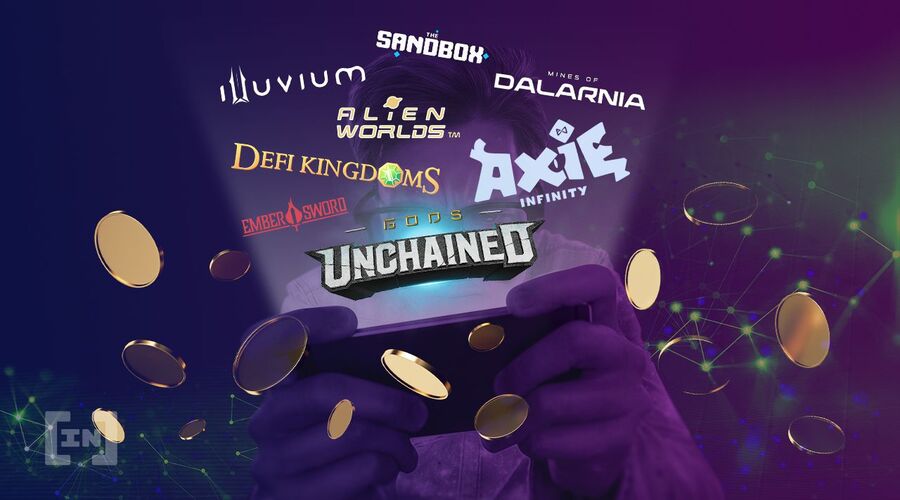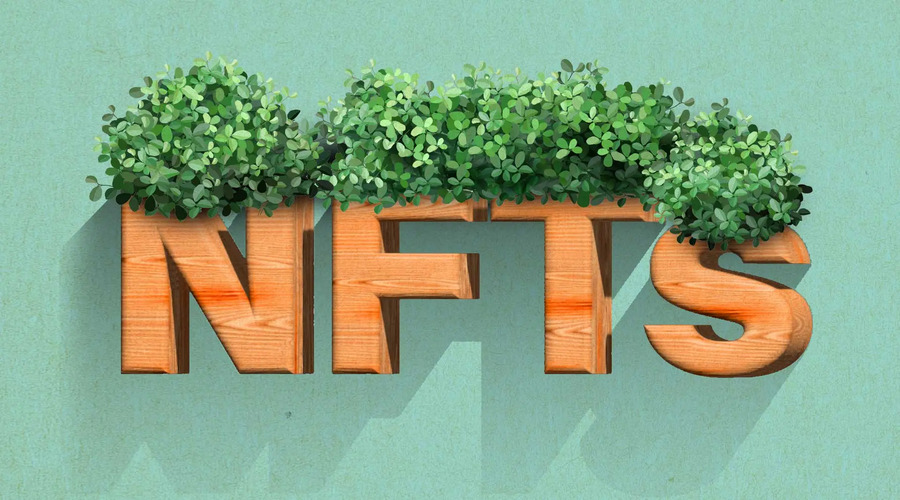Blockchain games that use NFTs are gaining popularity in the gaming industry. These games allow players to truly own and trade their digital assets, making gameplay more immersive and creating new revenue streams for developers. Let’s take a closer look at some of the most popular blockchain games that use NFTs, their unique features, and how they’re changing the gaming landscape.
Axie Infinity
Axie Infinity is a popular blockchain game that features cute creatures called “Axies”. These creatures can be bought, sold, and bred as NFTs, creating a vibrant marketplace for players. The game is also unique in that it combines elements of strategy, adventure, and role-playing games, allowing players to explore a vast virtual world, battle other players, and earn rewards. Key features include:
- Explanation of how players can earn cryptocurrency by playing the game and selling their Axies and other in-game items.
- Discussion of the game’s community and how players can form teams and compete in tournaments for prizes.
- Overview of the game’s governance token, AXS, and how it is used within the game’s ecosystem.
Gods Unchained
Gods Unchained is a trading card game that uses NFTs to represent each card. Players can buy, sell, and trade these cards on various marketplaces, with some cards being incredibly rare and valuable. The game is also unique in that it features a decentralized marketplace, allowing players to buy and sell cards without the need for a central authority. Key features include:
- Discussion of how the game’s virtual land ownership can potentially lead to real-world opportunities and investments.
- Overview of how the game is designed to be a decentralized autonomous organization (DAO) controlled by its players.
- Mention of the game’s partnership with major brands such as Atari and The Walking Dead.
CryptoKitties
CryptoKitties is a game that allows players to collect, breed, and trade virtual cats as NFTs. Each cat is unique and can be bred to create new, even more unique cats. The game’s popularity led to a surge in traffic on the Ethereum blockchain, causing some scalability issues and highlighting the need for more scalable blockchain solutions. Key features include:
- Explanation of how the game’s use of NFTs has inspired the creation of other NFT-based collectible games
- Discussion of the game’s role in popularizing blockchain gaming and bringing attention to the potential of NFTs
- Overview of how the game’s developers have continued to innovate and add new features to keep the game fresh
The Sandbox
The Sandbox is a virtual world-building game that uses NFTs to represent virtual land, allowing players to buy, sell, and build on their own virtual real estate. The game also features a marketplace for in-game items and assets, creating new revenue opportunities for developers and players alike. Key features include
Decentraland
Decentraland is another virtual world-building game that uses NFTs to represent virtual land, as well as in-game assets and items. The game’s unique feature is that it is entirely user-owned and operated, meaning that players have complete control over the virtual world and its economy. Key features include
- Discussion of how the game’s virtual land ownership can potentially lead to real-world opportunities and investments
- Overview of how the game is designed to be a decentralized autonomous organization (DAO) controlled by its players
- Mention of the game’s partnership with major brands such as Atari and The Walking Dead.
F1 Delta
Time F1 Delta Time is a racing game that uses NFTs to represent cars, tracks, and other in-game items. Each car is unique and can be bought, sold, and raced on various tracks. The game’s creators have also partnered with the Formula 1 organization to offer official digital collectibles, creating a new revenue stream for the racing franchise.
Sorare
Sorare is a fantasy soccer game that uses NFTs to represent player cards. Each card is unique and can be traded on various marketplaces, with some cards being highly valuable. The game has also partnered with various soccer leagues and teams, allowing players to collect cards featuring their favorite players.
Some points to consider
The popularity of blockchain games that use NFTs has led to a surge in demand for these games, with new titles being released regularly. Many of these games offer unique features and gameplay mechanics, making them attractive to both casual and hardcore gamers.
One of the main benefits of blockchain games that use NFTs is that they offer players true ownership of their digital assets. This means that players can buy, sell, and trade their assets as they see fit, without any restrictions or limitations from game developers or publishers.
Blockchain games that use NFTs are also helping to create new revenue streams for developers, who can earn money from the sale of in-game assets and items. This revenue can be reinvested in the development of new games and features, making the ecosystem more sustainable and profitable for everyone involved.
While blockchain games that use NFTs are still relatively new, they are already attracting a diverse range of players, from traditional gamers to crypto enthusiasts. This suggests that the potential for this technology in the gaming industry is vast, and we can expect to see even more innovation and experimentation in the coming years.
Some challenges facing blockchain games that use NFTs include scalability, interoperability, and user adoption. These issues will need to be addressed as the technology continues to mature, but many developers are already working on solutions to these problems.
In addition to the games mentioned above, there are many other blockchain games that use NFTs, including virtual casinos, sports games, and even educational games. This diversity suggests that the potential for this technology is not limited to a specific genre or type of game.
Conclusion
Overall, blockchain games that use NFTs are an exciting new development in the gaming industry. By offering true ownership of digital assets, creating new revenue streams for developers, and attracting a diverse range of players, these games are helping to reshape the way we think about gaming and digital ownership. As the technology continues to mature, we can expect to see even more innovation and creativity in this space, making it an exciting time for both gamers and developers alike.




